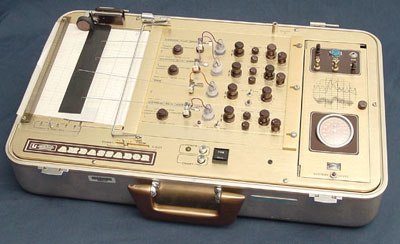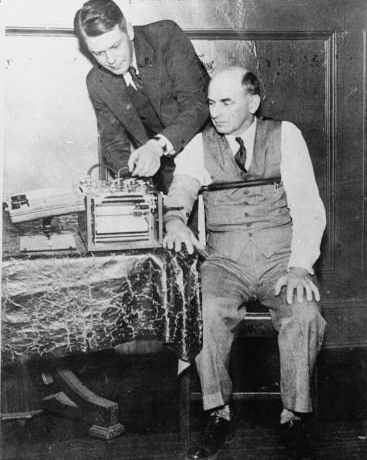Polygraphs and lie detectors are generally inadmissible in Oregon courts. However, they are still used in civil and criminal cases throughout the state, and the results are occasionally admitted in trials and hearings.

What is a polygraph?
A polygraph is a machine or computer software that is designed to measure and record several physiological indicators of likely deception in a person being questioned.
What is a polygrapher?
A polygrapher is the name or title of the polygraph operator– the person who tests for deception using a polygraph.
How does a polygrapher use a polygraph to detect lies?
Polygraphs use measurements of things such as blood pressure, pulse, respiration, and skin conductivity from a subject who is being asked questions, and the theory is that the test subject will produce physiological responses that can be differentiated from those associated with a subject giving non-deceptive answers.
Are lie detectors accurate?
It depends on who you ask. “Proponents will say the test is about 90 percent accurate. Critics will say it’s about 70 percent accurate,” said Frank Horvath of the American Polygraph Association (APA). Much of the accuracy will depend on the polygrapher (test operator), the questions (some questions will be better than others for measuring possible deception) and the test subject (some people can be tested more than others).
What are countermeasures and how to polygraphers detect them?
Countermeasures are actions taken to fool the polygraph test. They can include physical or mental exercises on the part of the test subject, or drugs. In theory, a lie detection test can be defeated by purposely creating exaggerated readings on the control questions. An example of how this might be achieved would be to alter one’s breathing pattern on the control questions. Other examples of methods that have been thought to induce physiological stress on control questions include momentarily holding one’s breath, doing mental math, squeezing the sphincter muscle, or biting one’s tongue before responding. In contrast, one might try to relax more on the relevant questions.
Are polygraphers in Oregon licensed?
In most states, yes. In Oregon, polygraphers are licensed through the Oregon Department of Public Safety Standards and Training (Standards and Certification). They also typically undergo accredited training. See the American Polygraph Association (APA) for more information.
Are the results of polygraphs admissible in Oregon courts?
The answer to this question is, “It depends.” It depends on the type of case, the jurisdiction, the venue, and the purpose that the polygraph is being offered. Lie detector tests are sometimes admitted in adult probation violation (PV) hearings, and sometimes admitted in DHS juvenile dependency and delinquency hearings. They are most frequently used behind the scenes in criminal investigations when law enforcement or a prosecutor wants to be sure that they are on the right track in pursuing criminal charges in a given case. For example, a suspect who passes a polygraph test may not be arrested or charged. However, a suspect who fails a polygraph might be subject to additional scrutiny– and criminal charges down the road.

Should I take a polygraph or lie detector in Oregon?
It depends almost entirely on the circumstances.
Oregon Polygraph Tests as Part of Employment
If you are asked to take a polygraph as part of your employment, that is likely a violation of Oregon law. Oregon has a strict prohibition on employers requiring employees or job applicants to submit to lie detector tests as a condition of employment or continued employment. This prohibition includes polygraph examinations, psychological stress evaluations, genetic tests, and brain wave tests (see ORS 659A.300).
Oregon Polygraph Tests as Part of Criminal Investigation
If you are asked to take a polygraph or lie detector as part of any Oregon criminal investigation, you should first contact an Oregon criminal defense attorney. Polygraphs in Oregon are typically not used in cases unless the possible criminal charges are serious. Therefore, you will want legal representation before taking a lie detector test in as part of any potential Oregon criminal charges.
